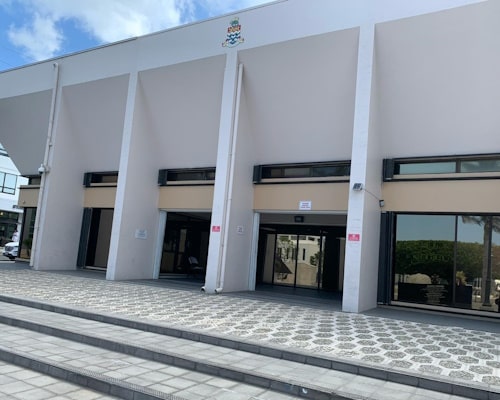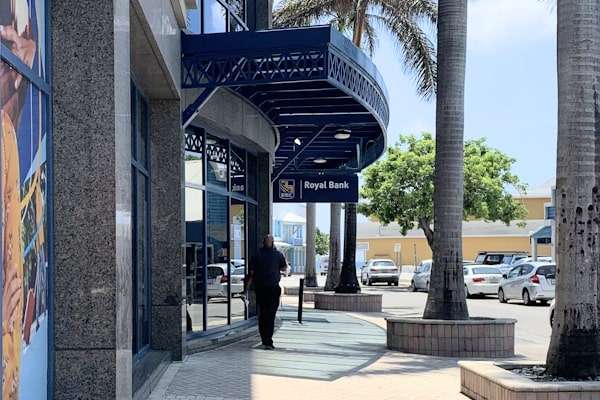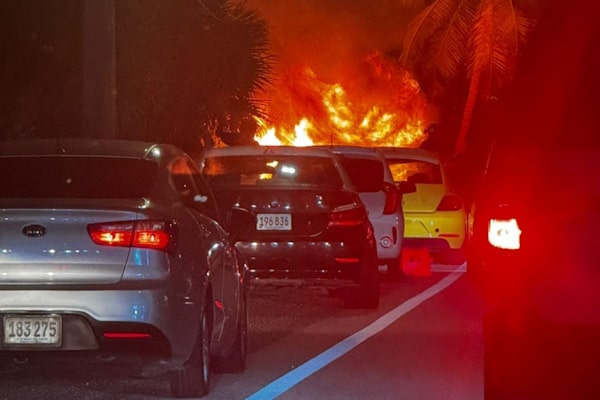RCIPS to present crime clean-up rates by 2024
(CNS): The 2023 crime report could be the last time that the RCIPS presents its annual statistics without offering some form of detection or crime clean-up rate. Despite the public interest in and the importance of solving crime and bringing perpetrators to justice, the RCIPS has so far been unable to answer questions about how well it is doing at not just arresting suspects but also laying charges and getting people to court.
For years, CNS has asked about how and when the RCIPS planned to communicate detection rates, but successive police commissioners have suggested that this is too challenging to measure because there are so many elements to the criminal justice system, and there had to be a definition of ‘solved crime’ from their perspective.
But last year, when they released the 2022 crime statistics, the management team indicated they were working on a way to report on charges and detection. When asked again this year, Detective Superintendent Pete Lansdown said the RCIPS had finished writing “a crime recording and detection policy” and was now in the process of training officers how to use and properly record what is to be considered a detection.
He said, “It can’t be done overnight” because there are so many potential outcomes to every arrest, and explained the need to be explicit on how and when to measure what is a detected crime.
“It’s a journey we are currently on,” Lansdown said. However, he was hopeful that by the time the RCIPS presents the 2024 crime statistics, they will include some form of clean-up rate. “We have taken ownership of this now, and we are moving it forward,” he added.
This year, the RCIPS recorded 3,955 crimes and arrested 2,177 people, but it does not record the number of people charged with a crime. Lansdown said there had been challenges with recording charges because one person could be charged with numerous crimes while several people can be charged with just one, so deciding how to count who has been charged is not as simple as it may seem.
He noted that counting the number of files submitted to the Department of Public Prosecutions would not necessarily reflect the detection rate because police often submit files to seek legal advice rather than to ask the prosecutors for clearance to charge.
In some cases, files are submitted by officers seeking to charge a suspect, but they are returned with directions for further work and then re-submitted. He said that so far this year, the RCIPS has already submitted over 400 files to the DPP, a figure he calculated by chance as a result of other work he was doing.
While there is no record of detection rates, in 2023, there were 57 robberies and attempted robberies, 89 sexual offences and 41 gun cases among the 3,955 crimes recorded. There were also four murders, and Lansdown said people had been charged in all four. Shaun Antonio Jackson (23) is now serving a life sentence for the murder of Randy Kelsey Robinson after trial this year, while the other three cases are set to go to trial this year.
A number of charges were laid last year for robbery, Lansdown said. In other robbery cases, while the police were not able to secure the evidence against suspects they believe are guilty of this crime, because they charged people for other crimes, taking them off the streets, the rate of robberies slowed down.
Lansdown has also stated that while the police have not been held accountable yet for their clean-up rate in specific numbers, the fact that the jail is consistently over capacity reflects the fact that the police are still getting criminals and suspects off the streets.
- Fascinated
- Happy
- Sad
- Angry
- Bored
- Afraid





































Instead of the RCIPS reporting their arrest and detection rates, they should be telling the public what they are DOING about the increase in crime. What are they doing about the influx of guns to this country? What are they doing about the increase in violent crime? What are they doing about the increase in reckless driving and speeding? What are they DOING ABOUT IT??
They like to make us feel bad when we did not get a license plate number when that is their job
let me see if I have this right. In the US you have to have evidence to arrest someone. In Cayman you have to arrest someone to get evidence?
“the fact that the jail is consistently over capacity reflects the fact that the police are still getting criminals and suspects off the streets”
Rubbish it simply means that the prison was designed when the population was 20,000 and has needed to be expanded for the past 25+ years.
Speaking of disclosure, would it also be possible for the public to be informed of the percentage of violent and other offenders who are allowed early release on license only to commit another crime while still on license. From media reports it seems that the laws relating to release on license need to be amended so that persons who commit another crime while on license are never allowed release on license again. It also seems that the board that recommends release on license has insufficient regard for community safety.
How about the percentage on police bail who commit further crimes whilst on bail – seems to be a common theme in trial reports.
I hope that the police are able to provide meaningful efficacy data in the near future. If the DPP could do the same we might have some basis for feeling less despondent about the rise in crime. As it is now the perception is that only a small percentage of even the most heinous crimes result in criminal charges let alone successfully prosecuted.
The RCIPS are not out on visible patrols, because they fundamentally misunderstand their mobile crime deterrence enforcement role in society. They seem to think (improperly) that their job is to take after-the-fact reports to add to a pile of unsolved mysteries for the annual crime statistics almanac.